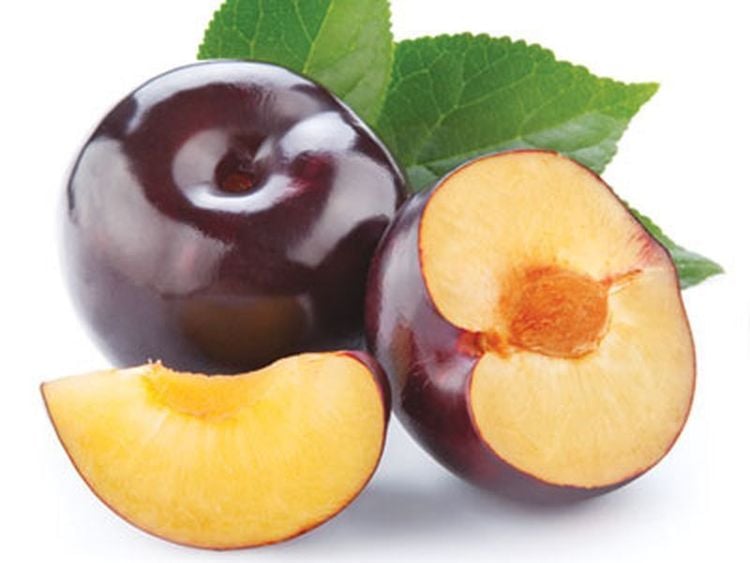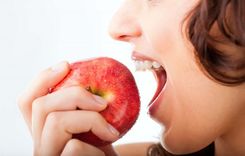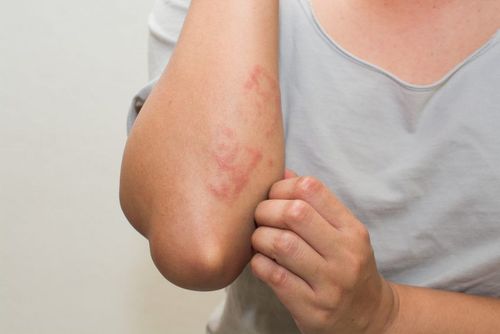1. Symptoms of peach, apricot, and plum allergy
1.1. Allergy to peaches, apricots, and plums
Stone fruits like peaches, apricots, and plums, which have a hard pit or a center hole, are usually safe for most people. However, in some cases, these fruits can cause allergic reactions in certain individuals. Examples of such fruits include:
- Apricots
- Cherries
- Nectarines
- Peaches
- Plums
1.2. Symptoms of stone fruit allergy
Allergic reactions are usually noticed soon after eating these fruits, although in rare instances, reactions may appear 30 minutes to an hour later. The most common symptoms of a stone fruit allergy include itching and swelling, typically in the following areas:
- Face
- Lips
- Mouth
- Throat
- Tongue
In more severe cases, the allergy can affect the skin, respiratory system, or digestive system, causing symptoms such as:
- Coughing
- Diarrhea
- Itchy or runny nose
- Skin rash
- Vomiting

In most cases, fruits like peaches, apricots, and plums, when processed, canned, or turned into fruit juices or syrups, do not cause allergic reactions. However, for individuals with severe stone fruit allergies, consuming any products made from these fruits can still trigger an allergic response.
1.3. Anaphylaxis
Anaphylaxis is the most severe type of allergic reaction. Symptoms typically appear within minutes of eating the food and can include:
- Dizziness
- Fainting
- Red or pale skin
- Rash and itching
- Low blood pressure
- Nausea or vomiting
- Rapid, weak pulse
- Swelling in the airway, throat, or tongue, which can make breathing difficult
2. Causes of peach, apricot, and plum allergies
Allergic reactions occur when the immune system mistakenly identifies certain food components as harmful and overreacts. This leads to the release of chemicals like histamine, which cause allergy symptoms. Food allergies can range from mild to severe. The most common cause of stone fruit allergies is oral allergy syndrome.
2.1. Oral Allergy Syndrome
If you have an allergy to peaches, apricots, or plums, you may experience itching in the mouth or throat after eating raw fruit. This condition is known as oral allergy syndrome (OAS) or pollen-food syndrome. Symptoms of OAS are usually mild and go quickly once the food is swallowed or no longer in contact with the mouth. OAS is considered a secondary food allergy. Primary allergies usually develop early in life, but secondary allergies can develop in individuals who are already allergic to substances like pollen or latex.
OAS occurs in people who are allergic to pollen. This happens because the proteins found in certain fruits or vegetables are similar to the proteins in pollen. As a result, the immune system may react to fruit proteins the same way it reacts to pollen. This is called cross-reactivity.
Allergies to specific types of pollen can cause cross-reactions with certain fruits or vegetables. Some types of pollen related to OAS include:
- Alder pollen
- Birch pollen
- Grass pollen
- Ragweed pollen
- Mugwort pollen

2.2. Allergy to birch or alder pollen
People who are allergic to birch or alder pollen may experience oral allergy syndrome after eating fruits like nectarines or other similar fruits. If you are allergic to birch or alder pollen, other foods that might cause oral allergy syndrome include:
- Fruits like apples, kiwi, and pears
- Vegetables like raw carrots, celery, and potatoes
- Nuts like almonds, hazelnuts, and peanuts
- Herbs and spices like anise, caraway, coriander, fennel, and parsley
According to the American Academy of Allergy, Asthma, and Immunology (AAAAI), 50-75% of adults with birch pollen allergies may also develop oral allergy syndrome after eating certain cross-reactive foods like stone fruits such as peaches, apricots, and plums.
2.3. Tree sap allergy syndrome
Similar to oral allergy syndrome, people allergic to tree sap can experience allergic reactions when eating specific foods. This happens because proteins found in tree sap are similar to those found in certain fruits. Foods that are known to cause moderate to high reactions in people with tree sap allergies include apples, avocados, kiwi, and celery.
3. Diagnosis and prevention of peach, apricot, and plum allergies
3.1. Diagnosis
Allergists specialize in diagnosing and treating conditions like allergies. When diagnosing a peach, apricot, or plum allergy, an allergist will first review your medical history and conduct a physical exam. They will ask about your symptoms and what foods you ate when the symptoms occurred.
The doctor might also perform allergy tests to help with the diagnosis, although these tests can’t specifically identify oral allergy syndrome. People with oral allergy syndrome often have positive allergy tests for pollen, but food allergy tests may show negative results.
Allergy tests may include skin prick tests or blood tests.
- Skin prick test: A small amount of the suspected allergen is introduced just under the skin. If you are allergic to that food, a small bump, like a mosquito bite, will appear. Results are usually available within 20 minutes.
- Blood test for antibodies: A blood test can look for specific antibodies in the blood that react to certain allergens. A blood sample is taken from your arm and sent to a lab for analysis. Results typically take about a week.
- Direct food challenge: If skin and blood tests don’t provide a clear result, the allergist may ask you to eat a very small amount of the suspected food. You will be monitored for several hours to see if any allergic reaction occurs. This test is always done under medical supervision in case of severe reactions.
3.2. Managing and preventing peach, apricot, and plum allergies
The most effective way to manage peach, apricot, and plum allergies is by avoiding these fruits. Planning ahead can also help prevent allergic reactions.
If you suspect you have an allergy, it’s important to get a diagnosis from your doctor. In the meantime, some simple steps can help you manage the allergy:
- Washing fruit: Wash and dry fruits before eating them. Although washing won’t remove proteins that trigger allergies, it can help remove other allergens like dust, bacteria, or pollen that may be on the surface of the fruit.
- Washing your skin: If you experience a mild skin reaction, wash the affected areas of your face and hands where the fruit touched, and drink some water to help ease symptoms.
- Avoiding exposure to allergens: You can try consuming cooked or canned fruits or drinking fruit juices. For many people, cooked fruits don’t cause allergic reactions. If you need to eat stone fruits like peaches, apricots, or plums, make sure they are processed or canned. In addition, always check food labels for ingredients to see if the product contains fruits you're allergic to. While this can be tricky, you may find certain brands that you can trust based on their ingredient lists or manufacturing processes.

- Avoid eating stone fruits during high pollen seasons: Since foods that cause oral allergy syndrome are linked to pollen allergies, it’s best to avoid eating stone fruits when pollen levels, especially birch pollen, are high. Consuming fruits during these times can worsen allergy symptoms.
- Have the right medication on hand: Antihistamines are the most common treatment. If you accidentally consume stone fruits, over-the-counter antihistamines can help reduce mild allergic reactions. There are various types of antihistamines, and you can determine which works best for you.
- Seek emergency care if necessary: If you experience a severe allergic reaction to stone fruits such as peaches, apricots, or plums, immediate treatment with epinephrine is required, and you should go to the emergency room. If you’re aware of your risk for severe allergic reactions to these fruits, your allergist may prescribe an epinephrine auto-injector (like an EpiPen) for you to carry in case of an emergency.
Although peach, apricot, and plum allergies are rare, people who are sensitive to allergens should still take precautions. If you have an allergic reaction after consuming these fruits, seek medical attention right away for a proper diagnosis and treatment. With the correct diagnosis, allergies to specific foods can be effectively prevented and managed.
To arrange an appointment, please call HOTLINE or make your reservation directly HERE. You may also download the MyVinmec app to schedule appointments faster and manage your reservations more conveniently.
Reference sources: healthyfully.com, healthline.com











